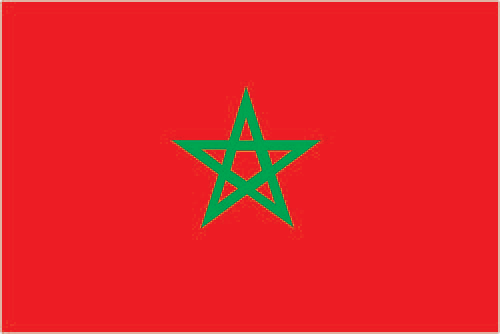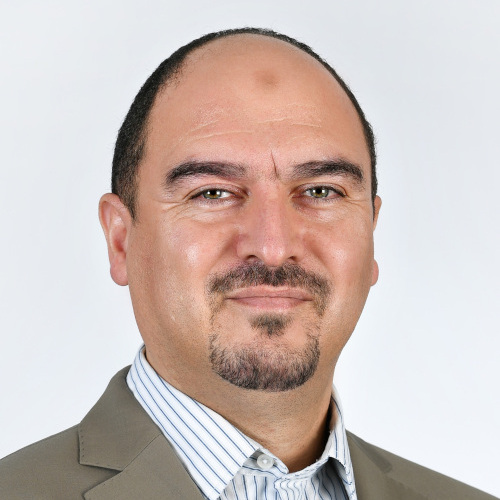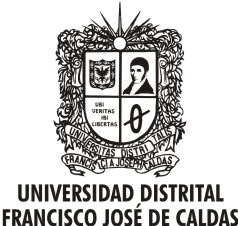
8th International Conference on Applied Informatics
8 to 11 October 2025
Université Mohammed VI Polytechnique
Ben Guerir,
Morocco 
Keynote Speakers

Cesar Diaz
Dr. Cesar Diaz is the Senior Director of AI/ML Solutions at OMASHU S.L., where he leads the charge in leveraging Big Data and Artificial Intelligence to enhance the performance and well-being of eSports athletes. With over 20 years of experience, he is an expert in AI/ML, distributed systems, and cloud computing. He holds a PhD in Computer Science from the University of Luxembourg and has held leadership roles at major organizations, including Head of Data Science & AI at Marvut Technologies and Data Analytics Team Lead for the Colombian government. An award-winning researcher recognized by Microsoft and AWS, Dr. Diaz is also a seasoned educator, having taught master's courses in Machine Learning and Artificial Intelligence at prestigious universities. His work bridges the gap between cutting-edge academic research and impactful industry applications.
Keynote: From Data to Victory: The Science of AI and Big Data in Shaping the Future of eSports
Abstract: AI-driven eSports analytics involves creating integrated data platforms that process diverse information to build a dynamic model of player performance and well-being. These systems are used to monitor, analyze, and optimize both in-game strategy and athlete health. They are primarily used for (i) performance enhancement by providing players and coaches with data-driven insights on strategy and mechanics, helping in making informed decisions to improve outcomes; (ii) predictive wellness monitoring by using AI and machine learning on biometric data to forecast potential issues like stress and burnout, optimizing training regimens. These platforms are essentially based on data (structured API data from games like League of Legends and biometric data from wearable sensors), algorithms for machine learning that predict performance and wellness outcomes, and visualization tools that present the insights in an understandable and actionable format for coaches and players. The objective of this presentation will be to review the OMASHU project as a foundational case study and to examine the potential trends and ethical considerations in the rise of data-driven eSports.

Youssef Iraqi
Dr. Youssef Iraqi is an Associate Professor of Computer Science at the College of Computing, Mohammed VI Polytechnic University (UM6P), Morocco. He received his Ph.D. and M.Sc. in Computer Science from the University of Montreal, Canada, and an Engineering degree in Computer Engineering from ENSIAS, Mohamed V University, Rabat. Dr. Iraqi has published over 150 research papers in international journals and conference proceedings. His research interests span wireless networking, Internet of Things, trust and reputation management, recommender systems, speaker identification, cloud computing, and digital forensics. He serves on the editorial boards of IEEE Network, Vehicular Communications, Computer Communications, and Annals of Telecommunications. In 2008, he received the prestigious IEEE Communications Society Fred W. Ellersick Prize Paper Award in the Field of Communications Systems. Dr. Iraqi is a Senior Member of IEEE and a member of ACM, with extensive international academic experience in Canada, the UAE, and Oman.
Keynote: Trustworthy and Intelligent IoT Systems: Challenges and Emerging Directions
Abstract: The Internet of Things (IoT) is becoming an integral part of critical infrastructures, enabling smart cities, healthcare, transportation, and industrial systems. However, the pervasive integration of IoT introduces fundamental challenges in trust management, scalability, security, and resource efficiency. In this talk, I will highlight recent advances in trust and reputation systems, secure crowdsensing, and federated intelligence for IoT. Drawing on ongoing projects and case studies, I will also explore how agentic AI can strengthen resilience and decision-making in distributed IoT environments. The presentation will conclude with a discussion of future research directions at the intersection of IoT, machine learning, and sustainable digital infrastructures.

Robert Laurini
Born in 1947, Robert Laurini (aka Roberto) holds two doctorates, one in 1973, and the other in 1980, both in information technologies awarded by the Claude Bernard University of Lyon, France. He speaks fluently French, English, Italian and Spanish. Throughout his career, he primarily worked at INSA-Lyon (University of Lyon), eventually achieving the status of distinguished professor. However, in 1976-77, he spent an entire year as a research associate at the Martin Centre of the University of Cambridge in the United Kingdom. In addition, in 1986-87, he served as a visiting professor at the University of Maryland, College Park, USA. Between 1995 and 2005, he held a part-time position at IUAV University in Venice, Italy. Since 2011, he has retired and holds the title of professor emeritus. During his career, he worked overall on computing aspects of geographic information systems, namely spatial data indexing, geometric quality control, geographic database consistency, updating through aerial photos, visual summaries, chorem generation from spatial data mining, geographic ontologies, sensor data organization and indexing, etc. In total, he supervised or co-supervised 44 PhD students in those domains. His more recent works have been on geographic knowledge, especially targeted to smart cities and territorial intelligence. He wrote several books regarding geographic information systems, especially for urban and environmental planning and the last one is “Geographic Knowledge Infrastructure: Applications to Territorial Intelligence and Smart Cities” published in 2017. He authored or co-authored more than 250 papers in various journals and conferences. He was invited to give seminars in many countries, especially in Italy, Morocco, Algeria, Argentina, and Mexico. He was a member of PhD committees more than 100 times in 19 countries. During the nineties, he was president of the ACMGIS steering committee (now SIGSpatial), vice-president of UDMS, European editor of Computers, Environment and Urban Systems, and associate editor of the Journal of Visual Languages and Computing. In 2009, he founded the NGO named “Universitaires Sans Frontières/Academics Without Borders” the scope of which is to help modernize universities in developing countries. In this NGO, he is now in charge of several universities in Latin America, especially for the training of PhD students and young researchers for scientific writing, and for lab heads in the definition and validation of promising novel research lines. For more details see www.laurini.net/robert.
Keynote: Introduction to City Digital Twins
Abstract: Computer-based city digital twins are virtual replicas of physical cities, integrating data from various sources to create a dynamic model that mirrors the real-world city. These systems are used to simulate, analyze, and optimize urban systems and processes. They can be overall used for (i) urban planning and design by allowing urban planners to visualize and simulate different scenarios, so, helping in making informed decisions; (ii) predictive analytics by using AI and machine learning, by forecasting potential issues and optimizing urban operations. Those replicas are essentially based on data (2D or 3D descriptions of the city, and coming from various kinds of sensors), algorithms of machine learning mimicking the evolution of the city. Finally, some visualization tools and platforms present the data and insights in an understandable and actionable format for city planners and decision-makers. The objective of this presentation will be to give a review of existing projects and to examine several potential trends.
Organized by
Sponsored by
2018 - 2025 All rights reserved







